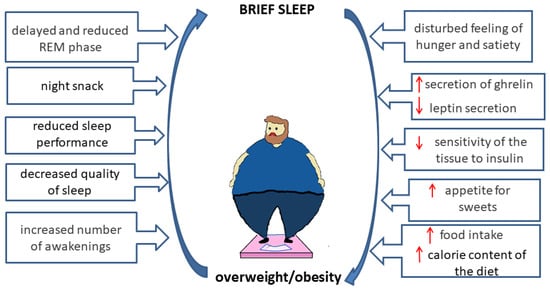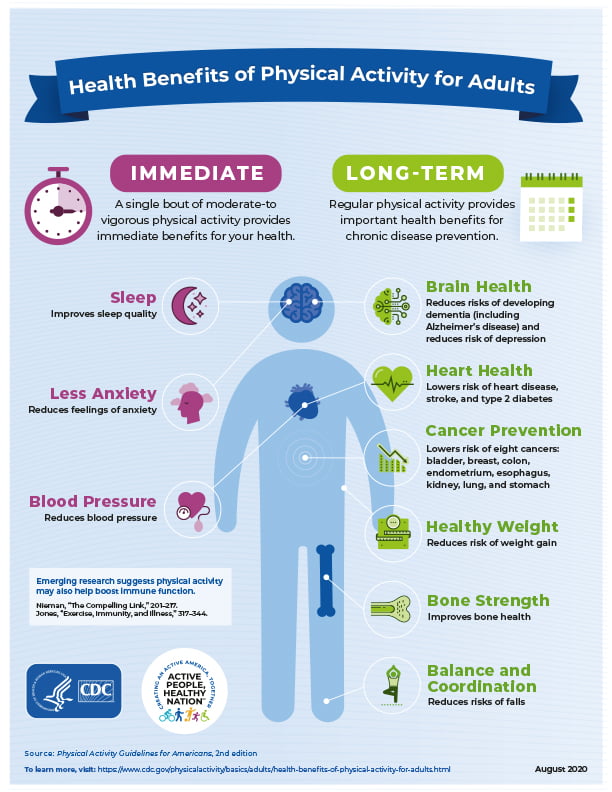A sedentary lifestyle may seem comfortable and convenient, but it can have unexpected consequences on our overall well-being. One of the most significant impacts is sleep deprivation. Yes, you heard it right! Your inactive habits can actually be robbing you of precious sleep. In this article, we will explore the relationship between a sedentary lifestyle and sleep deprivation, uncovering the surprising ways in which your lack of movement during the day can disrupt your sleep at night.
When we think of a sedentary lifestyle, we often imagine sitting for long hours, hunched over a desk or glued to the couch while binge-watching our favorite shows. Little do we realize that these seemingly harmless activities can wreak havoc on our sleep patterns. The sedentary lifestyle limits our physical activity, which in turn affects our body’s internal clock, known as the circadian rhythm. This natural rhythm regulates our sleep-wake cycles and relies on exposure to daylight and physical movement to function optimally. However, when we spend most of our waking hours in a sedentary state, our circadian rhythm becomes disrupted, leading to difficulties in falling asleep and staying asleep throughout the night.
So, if you find yourself tossing and turning at night, unable to achieve the restful sleep you crave, it might be time to examine your daily habits. By understanding the relationship between a sedentary lifestyle and sleep deprivation, we can take steps to counteract its effects and prioritize our sleep health. Get ready to discover the surprising

How a Sedentary Lifestyle Leads to Sleep Deprivation?
A sedentary lifestyle, characterized by minimal physical activity and prolonged periods of sitting or lying down, can have a significant impact on sleep quality and duration. Many individuals today lead sedentary lives due to desk jobs, long commutes, and increased screen time. This lack of movement and physical activity can disrupt the body’s natural sleep-wake cycle and contribute to sleep deprivation.
The Link Between Sedentary Lifestyle and Sleep Deprivation
A sedentary lifestyle affects sleep in various ways. Firstly, lack of physical activity can lead to weight gain and obesity, which are known risk factors for sleep apnea. Sleep apnea is a sleep disorder characterized by pauses in breathing during sleep, leading to fragmented and poor-quality sleep. The excess weight, particularly around the neck area, can obstruct the airways and contribute to breathing difficulties during sleep.
In addition, a sedentary lifestyle is often associated with higher levels of stress and anxiety. When we lead inactive lives, our bodies do not release endorphins and other mood-enhancing chemicals as frequently as they should. Regular exercise, on the other hand, helps to reduce stress and improve overall mental well-being. Without proper stress management, individuals may find it difficult to fall asleep or experience disrupted sleep patterns.
The Impact of Sedentary Behavior on Circadian Rhythm
Our bodies have an internal clock known as the circadian rhythm, which regulates various physiological processes, including sleep and wakefulness. Regular physical activity helps to synchronize our circadian rhythm, promoting a healthy sleep-wake cycle. However, a sedentary lifestyle disrupts this natural rhythm.
When we spend most of our waking hours sitting or lying down, our bodies receive less exposure to natural light, which is crucial for regulating the circadian rhythm. This lack of light exposure can lead to an imbalance in our sleep-wake cycle, making it harder to fall asleep at night and wake up in the morning.
Furthermore, sedentary behavior also affects the production of melatonin, a hormone that plays a key role in regulating sleep. Physical activity during the day helps to promote the production of melatonin in the evening, signaling to the body that it is time to sleep. Without sufficient physical activity, the body may not produce adequate amounts of melatonin, leading to difficulties falling asleep and maintaining a regular sleep schedule.
To combat the negative effects of a sedentary lifestyle on sleep, it is important to incorporate regular physical activity into our daily routines. Engaging in moderate-intensity exercises such as brisk walking, cycling, or swimming can help improve sleep quality and duration. Additionally, taking short breaks to stretch and move throughout the day, especially if you have a desk job, can also have a positive impact on sleep.
In conclusion, a sedentary lifestyle can contribute to sleep deprivation by disrupting the body’s natural sleep-wake cycle and affecting the production of sleep-regulating hormones. Incorporating regular physical activity into our daily routines is essential for maintaining a healthy sleep pattern. By prioritizing movement and exercise, we can improve both our physical and mental well-being, leading to better sleep quality and overall health.
Key Takeaways: How a Sedentary Lifestyle Leads to Sleep Deprivation
- A sedentary lifestyle, characterized by prolonged sitting or inactivity, can disrupt our sleep patterns.
- Lack of physical activity can lead to increased feelings of stress and anxiety, making it harder to fall asleep and stay asleep.
- Not getting enough exercise during the day can result in restless legs at night, causing discomfort and difficulty in achieving restful sleep.
- A sedentary lifestyle often goes hand in hand with poor eating habits, which can negatively impact sleep quality.
- Engaging in regular physical activity can promote better sleep by reducing stress, improving mood, and increasing overall tiredness.
Frequently Asked Questions
1. Why does a sedentary lifestyle contribute to sleep deprivation?
A sedentary lifestyle, characterized by prolonged sitting and lack of physical activity, can contribute to sleep deprivation in several ways. Firstly, when we lead a sedentary lifestyle, we tend to have lower levels of physical fatigue, making it harder for our bodies to naturally feel tired and ready for sleep. Regular exercise helps regulate our sleep-wake cycle, promoting better sleep quality.
Additionally, a sedentary lifestyle often leads to increased stress and anxiety. When we spend long hours sitting and not engaging in physical activity, our bodies and minds can become more tense and restless. This heightened stress can make it difficult to fall asleep and stay asleep throughout the night.
2. How does lack of physical activity affect sleep patterns?
Lack of physical activity can disrupt our natural sleep patterns. When we don’t engage in regular exercise, our bodies may not experience the physical fatigue necessary for deep and restorative sleep. Physical activity helps release pent-up energy and tension, allowing our bodies to relax and prepare for sleep.
Moreover, regular exercise promotes the production of endorphins, which are natural mood boosters and stress reducers. Without these endorphins, we may experience higher levels of anxiety and restlessness, making it harder to fall asleep and stay asleep throughout the night.
3. Can a sedentary lifestyle lead to insomnia?
Yes, a sedentary lifestyle can contribute to the development of insomnia. Insomnia is a sleep disorder characterized by difficulty falling asleep, staying asleep, or experiencing poor sleep quality. Lack of physical activity can lead to heightened stress and anxiety, which are common triggers for insomnia.
In addition, a sedentary lifestyle often goes hand in hand with poor sleep hygiene habits, such as irregular sleep schedules and excessive screen time. These factors can further disrupt our sleep-wake cycle and contribute to the development of insomnia.
4. How can a sedentary lifestyle impact sleep quality?
A sedentary lifestyle can negatively impact sleep quality in several ways. Firstly, lack of physical activity can lead to increased restlessness and difficulty in falling asleep. Without the physical exhaustion that comes from regular exercise, our bodies may not be as ready for sleep.
Furthermore, a sedentary lifestyle often leads to increased screen time and exposure to artificial light, particularly in the evening. This can disrupt our body’s natural production of melatonin, a hormone that helps regulate sleep. The blue light emitted from screens can trick our brains into thinking it’s still daytime, making it harder to fall asleep and achieve restful sleep.
5. What are some ways to counteract the effects of a sedentary lifestyle on sleep?
To counteract the effects of a sedentary lifestyle on sleep, it’s important to incorporate regular physical activity into your daily routine. Aim for at least 30 minutes of moderate-intensity exercise most days of the week. This can include activities such as walking, jogging, cycling, or strength training.
Additionally, practicing good sleep hygiene habits can improve sleep quality. Establish a regular sleep schedule, create a relaxing bedtime routine, and limit exposure to screens and artificial light before bed. Creating a comfortable sleep environment and managing stress through relaxation techniques, such as deep breathing or meditation, can also help promote better sleep.

Exercise not enough to undo harms of sedentary lifestyle, study shows
Final Summary: The Link Between a Sedentary Lifestyle and Sleep Deprivation
So, there you have it! After exploring the connection between a sedentary lifestyle and sleep deprivation, it’s clear that these two factors are closely intertwined. By leading a sedentary lifestyle, where physical activity is limited and prolonged sitting is the norm, we inadvertently put ourselves at risk for sleep deprivation. This can have serious consequences for our overall health and well-being.
By spending too much time being sedentary, whether it’s sitting at a desk all day or lounging on the couch for hours on end, we disrupt our body’s natural sleep-wake cycle. Our bodies are designed to move and be active, and when we don’t give them the exercise they need, it can lead to difficulties falling asleep and staying asleep at night. Additionally, a lack of physical activity can contribute to increased stress levels, anxiety, and depression, all of which can further disrupt our sleep patterns.
To combat the negative effects of a sedentary lifestyle on sleep, it’s important to prioritize regular exercise and movement throughout the day. Whether it’s taking short breaks to stretch and walk around, incorporating physical activity into your daily routine, or finding activities you enjoy, making an effort to be more active can greatly improve your sleep quality. Remember, a healthy body leads to a healthy mind, and a good night’s sleep is essential for overall well-being.
So, let’s break free from




